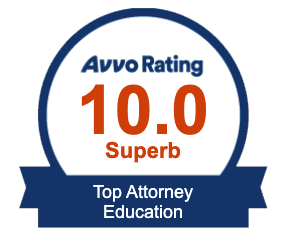What is a state complaint that is filed with the State Department of Education to resolve special education disputes? The IDEA and its implementing regulations provide that a parent, advocate, attorney or interested party can file a state complaint to resolve a special education dispute. 34 C.F.R. 300.153. The complaint must meet these requirements: statement that the local educational agency has violated a provision of the IDEA; the facts upon which the complaint is based; and the signature and contact information of the complainant. If the complaint is about a specific child, then the complainant must allege: the name and address of the specific child; the name of the school where the child is attending. The complainant must also describe the nature of the problem of the child including facts relating to the problem; and a proposed resolution of the problem to the extent known and available to the complainant at the time the complaint is filed. The complainant must allege a violation of the IDEA that occurred no more than one year prior to the date is received by State Department of Education. The complainant must also file a copy of the complaint to the local educational agency or school system serving the child at the same time the complainant files the complaint with the State Department of Education. See also GA. Comp. R. & Regs. 160-4-7-.12. You can find the requirements for filing a state complaint on the Georgia Department of Education website.
What are the pros and cons of filing a state complaint instead of a request for a due process hearing or complaint with the Office for Civil Rights? First of all, a state complaint is filed only for violations of the IDEA. You file a complaint with the U.S. Department of Education, Office for Civil Rights, only for violations of Section 504 of the Rehabilitation Act, Americans with Disabilities Act (ADA), and Title VI and IX of the Civil Rights Act. The state complaint process is limited to violations of the IDEA. The violation must have occurred one year before the State Department of Education receives your complaint. This means that you can only allege recent violations of your child’s rights that occurred within the past year.
What else is important to know about the state complaint process? Well, it does not cost anything except for postage of mailing the complaint to the State Department of Education and local educational agency where the child attends schools. You can hire an attorney or advocate to write the complaint but the fee is probably much less than if you retained an attorney to pursue a due process complaint. There is a short time line for resolution of the state complaint: sixty (60) days from receipt of the complaint except under exceptional circumstances or agreement of the parties. This short time line is helpful in that your complaint will be addressed quickly by the State Department of Education and you will receive a decision fairly quickly.
What is the process for resolution of a state complaint. In general, when the complaint is received by the State Department, it is reviewed by staff and assigned to an investigator. The investigator secures the needed information from the parent, advocate, school system and others so that the State Department can make a decision. The investigator and State Department of Education staff review information and documents such as IEPs, evaluations, eligibility reports, and other facts that relevant to deciding the state complaint. The investigator may communicate and speak with the complainant, parents, school system staff and others that have relevant information about the state complaint. During the state complaint process, the State Department may recommend mediation to resolve the dispute.
The state complaint process is streamlined to provide a quick resolution of special education disputes with the school system. This is a significant advantage over due process hearings that can take many months and is often costly to parents. On the other hand, the state complaint process does not provide “hearings” and other avenues to challenge the veracity of witnesses and subpoena documents that you may want the investigator and State Department of Education to review. There is no impartial judge to review the documents and information to make a decision. The decision is made by the State Department of Education, Division of Special Education Services and Supports. The number of state complaints filed with the State Department of Education has substantially risen during the past several years. These complaints are also becoming more legalistic and school systems are increasingly relying upon their school system lawyers or law firms specializing in special education practice to file responses to the state complaint. There are pros and cons for filing state complaints. What is best for your dispute with the school system is something you have to decide. Sometimes it is helpful to speak to an experienced special education advocate or special education attorney to decide whether a state complaint will resolve your dispute with the school system.

